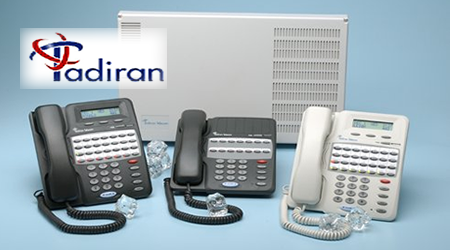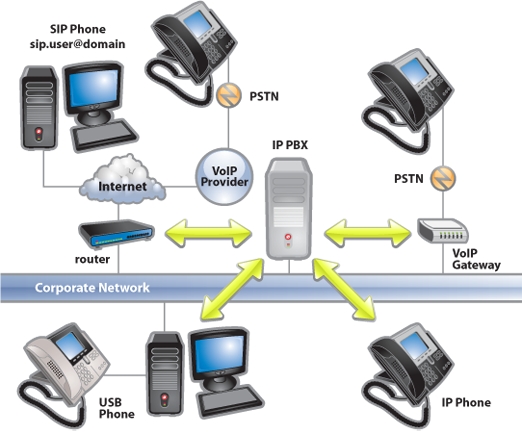Are you a busines owner or manager? Are you wondering how to choose the right business telephone system? There are many things to consider when choosing a business telephone system. Even the most tech saavy business owners and managers may overlook important factors when choosing a telephone system for their business. Following, are a list of the top five basics that you should consider when choosing a business telephone system:
Jamie Lendino (CNet Holiday Gift Guide for 2012) writes, “If you’re a sole proprietor or if you operate a small store that needs just a couple of phone lines, a standard POTS (Plain Old Telephone Service) setup is often sufficient…On a basic level, you’ll want a separate extension and phone for each employee who uses a phone in that office. If clients visit the office regularly, a conference room phone will help, possibly with the capability for employees to dial in remotely. What kind of service and equipment should you get for your business? Here’s how to figure it out.”

1. Consider your basic business needs. Do you need individual extensions with voicemail for each employee? Do you want the options of a mobile solution (such as a BlackBerry or other smart phone) for employees to take on the road? Consider your future goals…How many employees do you envision having in the next three years? Do you want calls routed to people in remote locations? Decide these important factors before you begin shopping. The following features are available with most small-business packages:
multiple extensions
remote voicemail pickup
route-to-fax capability
call forwarding
2. Considering Optional Features. When choosing a business telephone system, it’s important to consider the optional features that you may want to utilize. Most Office telephone systems come with these options, however it’s important to make sure that the features you want are available with the office telephone system that you choose.
Auto-attendant: This option is useful on many levels: This feature can free you or your staff from answering the phone every time it rings. Auto-attendant is a voice recording (much like voicemail) where you can leave messages for business hours, any directions or instructions, and route incoming calls to the right employees. It can be set up to have menu features, and different messages may be recorded for day or night calls as well as changes over the holidays. Lendino also notes, “Equally important, when customers hear a computerized system with options, it can make them feel like they’ve reached a larger business.”
Conferencing: If you have a lot of phone conferences, you might find it more cost-effective to have your own teleconferencing capabilities instead of using a third party service.
Call hunt: If one employee doesn’t answer the phone, the call will automatically forward to another person instead of going directly to voicemail.
Call-forwarding: Most of us are familiar with the capability of call forwarding, however there are many new features that come in quite handy. Calls may be forwarded directly to a cell phone when the office is empty, but nowadays incoming calls to the office can be directly transferred to an employee out in the field rather than their office extension.
3. Home offices and contractors can also benefit from phone systems. Just because you’re running your business out of a spare bedroom doesn’t mean you can’t afford a professional telephony solution. A good basic business system can let you schedule auto-attendant features in case you’re away, forward your calls to your mobile phone, and route incoming fax transmissions (even through the auto-attendant system). This is especially valuable for independent contractors who need 24/7 availability (such as plumbers) or for those who frequently leave the home office on sales calls.
4. Do you need your system to be expandable? Noone wants to spend the time researching the perfect phone system, and spending the money on purchasing, installing and programming it, only to find that in two years time their business is growing and the phone system is not expandable to accomodate for the growth. If you plan on your business growing (more employees, moving to a larger office space, etc) make sure that you choose an office telephone system that is capable of growing with your business.
5. What type of service will you need? For sole proprietors and small-office environments that need just a few phone lines and basic voicemailboxes for their office telephone system, VoIP (Voiceover Internet Protocall) could be ideal:

Using VoIP can significantly reduce your telecommunications costs. Operating costs for VoIP service providers are significantly lower than for traditional phone companies, which must contend with the existing, expensive-to-maintain phone infrastructure and costly industry regulations. With lower expenses, VoIP providers can charge much less than their competitors. And with VoIP, businesses no longer have to maintain separate networks for phones and data–another significant money saver.

PBX systems include onsite switching equipment to route calls between employees and to outside lines. Standard PBX systems are normally ideal for medium and large businesses. But newer PBX vendors provide services geared to the small-business market using VoIP technology. These kinds of systems are a good choice if you need sophisticated auto-attendant features. PBX systems cost more than VoIP, especially on the start-up side, since you’re buying switching equipment in addition to new phones. A PBX can be overkill for businesses with a small number of employees.
**For more information contact World Telecom & Surveillance, Inc. We’d be happy to answer any questions you might have about researching, buying and installing an office telephone system. Give us a call 530-223-9753, serving California, Oregon, Nevada and the surrounding areas.

